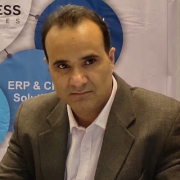What is our primary use case?
We are partners of Meraki and operate as a service provider for Meraki switches, notably the Meraki MS Series 410, 420, and 450. Our responsibility is to help customers deploy these solutions, which are always situated on-premises.
The main use cases for our customers include end-user connectivity, IP telephony, and security purposes such as for the cameras and access points.
What is most valuable?
The top feature of Meraki MS switches for me is Layer 7 application visibility. Another positive in general is that you don't need to set up a console to the switch itself; it dials in to a single dashboard where you can completely manage all your network devices.
What needs improvement?
In my opinion, there's room for improvement cost-wise. With Meraki's licensing terms, you're required to pay an annual licensing fee, which can be for a one-year license or perhaps a five-year license. But if you analyze the costs involved, there are huge expenses incurred as far as the licensing is concerned. It's very costly.
When you see the cost of the device and the cost of the license, they're almost the same. So let's say, for example, a device costs $4,200 and you go for a three or four year license, it will cost you the same. And that's for everything; for the wireless, the switches, the firewalls, everything.
Of course, the total costs depend on several factors, including the customer requirements, the service provider, and the service integrators (which may have their own partnership bias). With Cisco partners, there are gold level partners which will have different discounts to the silver partners, for instance. Given these factors, I always try to get the maximum discount from the vendor so I can offer a solution to my customers at the lowest margin.
Apart from costs, one improvement that I would like to see in terms of features concerns the mobile application. Most users of our switches are now on the web-based interface and I feel it's time for Meraki to start developing the mobile app more seriously, because it's currently not up to standard and a lot of people aren't using it.
For how long have I used the solution?
I've been using Meraki MS Switches for about six to eight years.
What do I think about the stability of the solution?
For the cloud license model, the stability of the switches largely depends on your Internet capability. For example, you will want to have both primary and secondary backbone connections for the Internet, and that's it. The stability of the hardware is fine.
What do I think about the scalability of the solution?
I would say that it's scalable, especially in the sense that there are models up to at least 10 Mbps and at the upper range there are 10 Gbps copper switches. Then there are switches that support 1 Gbps fiber as well as 40 Gbps fiber (via QSFP). Thus, there are enough models to offer the scalability that you need as far as bandwidth is concerned.
There are fixed-model switches and also some older model switches to choose from, so it depends upon the customer's requirements to decide on their own solution. When it comes to scalability, there are various options available.
How are customer service and support?
Cisco is always top-notch when it comes to technical support. It's reassuring to know that they will be there to assist you in solving your issues. Of course, there are sometimes priority cases, but even then they make sure to be available to help you resolve the issue. It doesn't matter if you're a customer, a partner, or a service provider, they provide an excellent technical support service.
How would you rate customer service and support?
How was the initial setup?
The setup is very easy. It's typically a one-touch provisioning process and it's like not traditional switches where you have to put in a lot of effort bringing the switch up and running with a basic configuration. With Meraki switches, all you need is a status page where you can log in locally. As soon as you connect it to the Internet, the device is on board and on the cloud, and you can start playing around with it.
What about the implementation team?
You don't need a lot of technical staff to implement the switches. One engineer is capable of doing it alone and, in fact, most of the time it just takes a single team member to deploy. Naturally, this would be an individual who knows the product inside and out, to be able to deploy without anyone's help. You also need a few remote hands who can rack and stack the equipment, but as far as the configuration is concerned, only one engineer can do everything.
I had one scenario where I had 120 devices divided into three different models. Four of them were Layer 3 fiber switches which acted as the core switches and 16 of them were fiber switches for distribution, also with Layer 3 capability. Then we had almost a hundred devices acting as access switches, which is normally Layer 2 PoE-capable switches where we have a couple of SFP ports for the uplink. All of this a single person would be able to deploy in five working days, at eight hours a day.
When it comes to maintenance, it depends on the size of the infrastructure. In a retail mall, for example, you will have hardly 150 switches, compared to a big hotel or apartment building where you will have more than 200-300 switches. With those kinds of deployments, you will have to have multiple people to address the multiple issues with the guests.
What was our ROI?
There is a lot of scope for ROI with Meraki, mainly because your headcount will go down. With Meraki switches, you don't need to have too many people around to manage the infrastructure, and you don't have to travel much to maintain multiple branches across the globe.
Additionally, you won't need to spend much in terms of reporting tools, log tools (e.g. log collectors), or anything like that because everything is included in the product. There's a lot of sophistication and features that Meraki brings in terms of Layer 7 application visibility. You really have complete control over the end-users infrastructure.
What's my experience with pricing, setup cost, and licensing?
If you buy a license for one switch, it will include the licensing for the device RMA, device failure warranty, technical support, and everything else. Also covered is support for software updates for future releases. It's a single license for everything and there's nothing that customers need to pay in addition to the license.
What other advice do I have?
I would rate Meraki MS Switches an eight out of ten.
Which deployment model are you using for this solution?
On-premises
Disclosure: My company has a business relationship with this vendor other than being a customer.



















